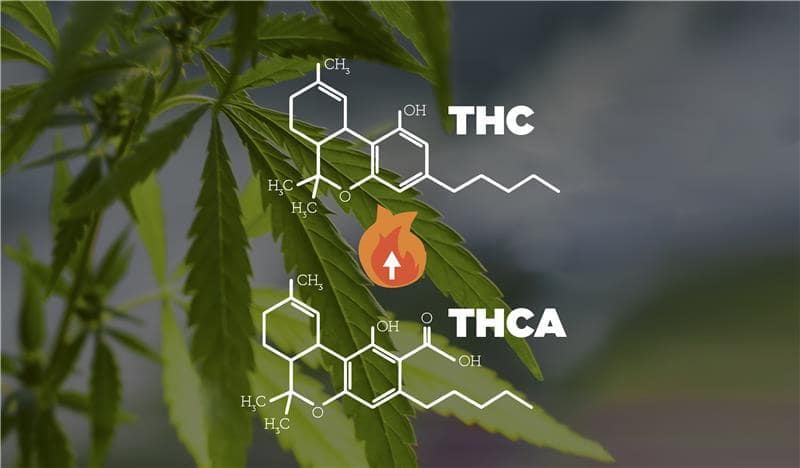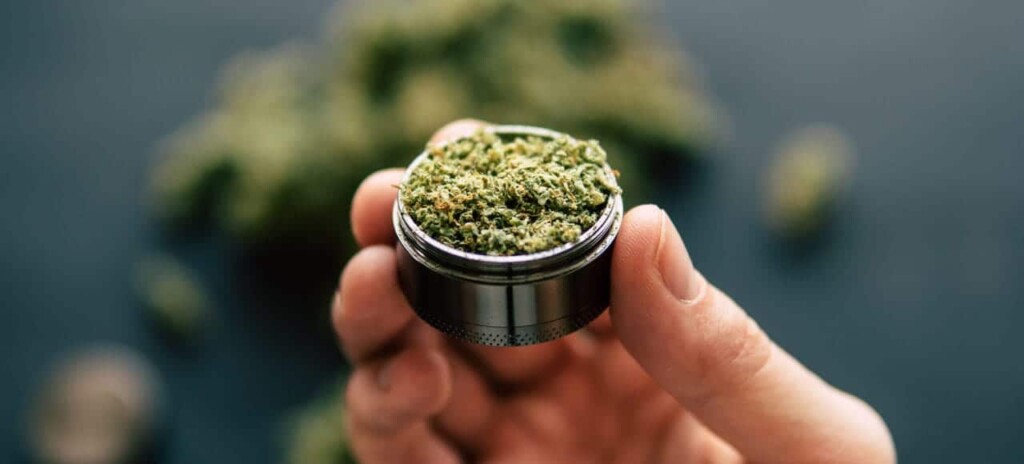FREE SAME-DAY SHIPPING ON ORDERS OVER $99.99
Cannabis is the latest, greatest herbal hot shot that’s being marketed as an all-around alternative solution to a variety of discomforts. But it hasn’t always been that way. Up until recently, cannabis was recognized as an illicit substance, available only in certain states where it was legal as a medicinal herb.
And the main reason for that was because of the presence of delta-9 THC — a chemical compound that was found to cause psychoactive effects. It was only after researchers found a way to limit the presence of delta-9 that cannabis soon became legal as hemp. Today however, it’s not uncommon to find delta-8 THC in your hemp-derived products. Is it like delta-9, and if it is, shouldn’t it be illegal? Here’s what you need to know.

Cannabis is chocked full of a variety of chemical compounds that promote a variety of physical and mental effects. A family of chemicals in the plant is called cannabinoids, and these are unique to the cannabis plant. According to studies, there are close to 200 different cannabinoids in the herb, and the most well-known would have to be delta-9 THC.
Because of its psychoactive effects, delta-9 THC has often been tagged as the most ‘dangerous’ compound in cannabis chemistry. That said, any part of the Cannabis sativa L. plant that contains more than 0.3% delta-9 THC is considered marijuana, which may or may not be illegal depending on the laws in your state.
If the sample contains 0.3% delta-9 THC or less, then it’s called hemp, and should be legal anywhere you get it. However, there has been quite a lot of confusion, especially inside the hemp market, with the rise of delta-8 THC. And while their names and chemical structure might be a little too similar, there are some major differences with these compounds and how they work.
As one of the most powerful cannabinoids in the cannabis plant’s chemistry, delta-9 THC works by binding to CB1 receptors that are present throughout the body. However it’s important to recognize that these receptors are most prominent in the brain, which is why delta-9 tends to produce more heady effects that might give the user a buzz.
Another thing to consider is the fact that delta-9 THC is especially prominent in the cannabis plant. Making up a significant portion of the herb’s cannabinoid chemistry, delta-9’s strong presence is the main reason why the government requires controlled delta-9 concentrations to ensure that it doesn’t produce any effects.
And then there’s delta-8 THC. In terms of chemical structure, delta-8 and 9 are only different by a few atomic chains. In fact, the National Cancer Institute states that delta-8 THC is an ‘analogue of THC with antiemetic, anxiolytic, appetite-stimulating, analgesic, and neuroprotective properties.’
That means that it should have the same effects as delta-9 THC. But there’s more to it than just that. Studies have found that delta-8 binds mainly to CB2 receptors which are located in the extremities and in the gut. So it doesn’t and can’t cause the same head-centric effects that delta-9 does.
On top of that, delta-8 — although equally powerful — is only present in trace amounts throughout the cannabis plant. That means even when you take a butt load of hemp (or even marijuana for that matter), there would never be enough delta-8 THC to produce palpable effects on its own.

However recently, the DEA issued an Interim Final Rule which states that all synthetically derived tetrahydrocannabinoids remain schedule I controlled substances. And while that might sound like a daunting phrase, it’s worth highlighting the word ‘ synthetically.’
With manufacturers hoping to find a viable loophole, this Interim Final Rule statement can be taken to mean that any delta-8 THC manufactured from CBD (and not from the plant itself), can be considered illegal. But then again, delta-8 THC that’s extracted straight from the hemp plant might still be outside of the law.
Another thing worth recalling is that based on the 2018 Farm Bill, delta-9 THC stands out as the only chemical compound in the cannabis plant that’s controlled and restricted. So it seems that all the regulations in place overlap and place delta-8 THC in a strange gray zone that’s yet to be truly defined. As of now though, we can say with certainty that there are no laws that can penalize you for using delta-8 THC products.
If you’ve been interested in hemp for a while, then the addition of delta-8 THC into the every growing list of cannabinoids worth giving a shot might tickle your fancy. And with so much promise behind the compound, it might be tough to turn away. Fortunately, it’s widely available these days, being sold as edibles, flower, pre-rolls, vape juices, and so much more.
But while we’re definitely not stopping you from exploring the exciting world of delta-8 THC, it’s still important to practice due diligence. Read the labels, know your vendor, and steer clear of brands that offer anything other than true, blue, organic formulations. And finally, know your pace — it’s still delta-8 THC after all.
[starbox id=”3″]